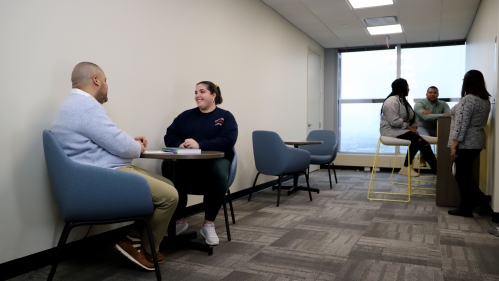
RUBIES
Fee Structure
Short-term Collaborations (hourly)
Short-term collaborations typically involve support on small studies, design / power calculations, or general consulting.
- First hour free
- Hourly billing after that:
- MS/MPH Student Analyst: $80/hour (Rutgers or associated academic institutions only)
- Staff Analyst: $135/hour internal or $270/hour external
- Faculty Member: $165/hour internal or $330/hour external
Task Based (fixed price)
Fixed price contracts are preferable for investigators with mid- to long-term projects who want the security of knowing ahead of time the cost to complete the work, regardless of how long the work takes. The RUBIES manager will work with investigators to determine the scope of work and to provide the budget for the work. If it is later determined by the investigator that there needs to be a changes in scope of work (either expanded or decreased), RUBIES will provide the adjusted budget.
- Scope of work determined by analyst and investigator
- RUBIES responsible for completing the tasks in the scope of work
- Cost determined prior to stat of project
Fixed Percent Effort Contract
RUBIES staff are available to be on funded research as a percentage effort. This is a great option for investigators who need support from a programmer or biostatistician on their grants.
- Percent effort of MS analyst
- Cost based on their salary + fringe (and possibly indirects)
"Retainer" Model
A department, school, institute, or research lab might need a lot of short-term consultations in a given year. A good option in this case is to pre-pay for a certain number of hours in a year. A RUBIES analyst would then be available to members of that group and would keep track of hours used. Support could include consultations, programming, data analysis, holding office hours, and educational workshops.
e.g., a department might expect to need about 1 day per week of a biostatistician and pay the retainer to have access to that support. Cost is based on a percentage of the typical annual salary plus fringe, currently $140,000. For example, one day per week of a M.S. biostatistician would cost $140,000*0.20=$28,000 for the year.